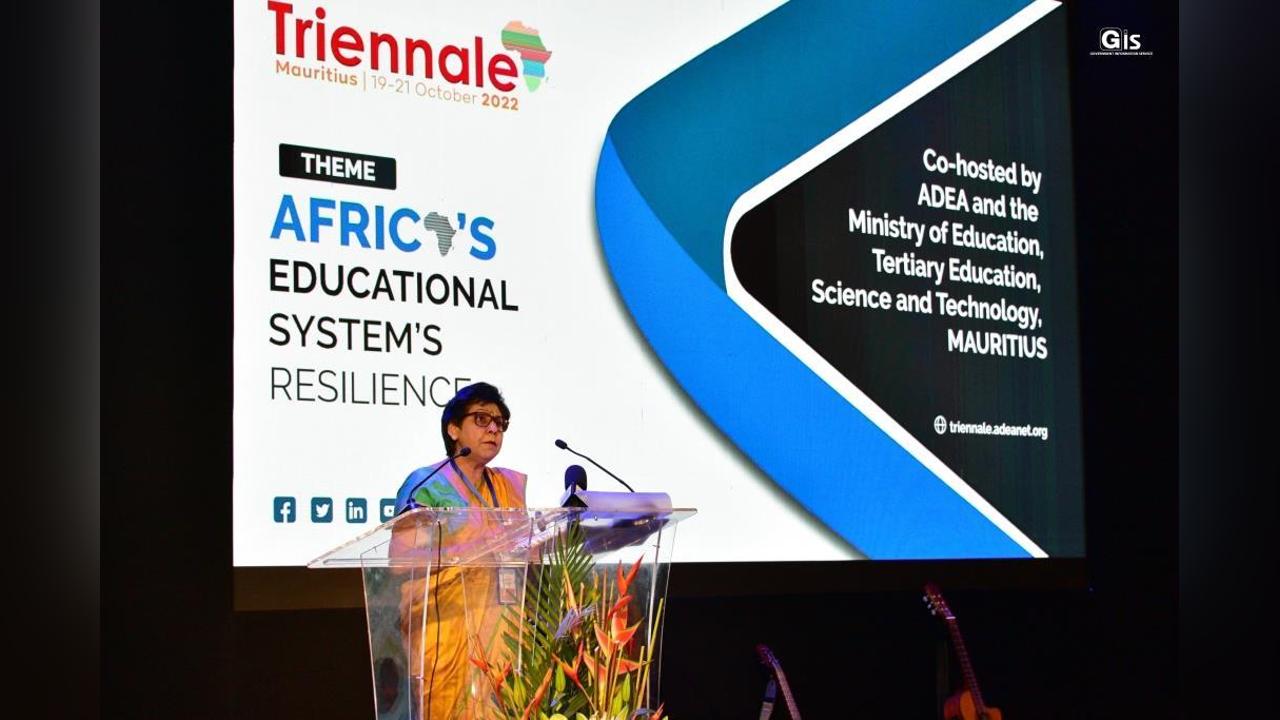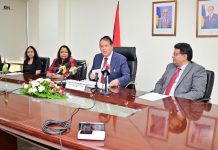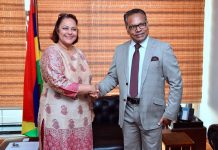Africa-Press – Mauritius. Access, relevance, quality, equity and inclusiveness should remain the mainstay of our education systems. It is of cardinal importance that the education resilience strategy that we are all elaborating in our respective countries should be inclusive enough to take on board all our learners, including those who are marginalised or who have special needs.
This statement was made, today, by the Vice-Prime Minister (VPM), Minister of Education, Tertiary Education, Science and Technology, Mrs Leela Devi Dookun-Luchoomun, at Le Méridien Hotel, in Pointe-aux-Piments.
The VPM was speaking at the inauguration of the Association for the Development of Education in Africa (ADEA) Triennale Conference on Education, which is one of Africa’s seminal high-level forums for political dialogue focusing on critical themes that transform Africa’s education systems for sustainable social and economic development.
African Ministers responsible for the portfolios of education, science, technology, innovation, employment and training coming from Uganda, Madagascar, Ivory Coast, Gambia, Malawi, Ghana, Rwanda and Mauritania, as well as other dignitaries and representatives of development organisations were present.
The inaugural ceremony was also marked by recorded video messages of solidarity of several personalities representing namely: Bill & Melinda Gates Foundation, the EU, Nuffic and the UNESCO.
In her address, the Vice-Prime Minister highlighted that it is incumbent upon us to ensure that all of our children and youth access education as an inalienable right, and only then can they be better prepared to deal with the challenge of living in the C21 world. She underlined that it is necessary to ascertain that learners are not shortchanged by education systems.
The VPM also reckoned that while the COVID-19 pandemic has caused 147 million children to miss more than half of their in-class instruction, it has also opened new pathways and new areas of focus for education systems globally such as the acquisition of digital skills and has consequently triggered innovation.
COVID-19, she further stated has taught us a lot of things, including the fact that we, as policymakers, have the responsibility to enable teachers to transform themselves and become agents of change, and that means investing massively in them in building their capacity.
She also spoke of her belief that it is equally important to envisage a shift from mere professional development toward increased professional learning.
The VPM, in addition, emphasised that the ADEA Triennale should be seen as part of the momentum that has been gaining ground globally, one that reached a pinnacle with the September ‘Transforming Education Summit’ called by the Secretary General of the United Nations.
According to her, the Triennale will give participants an opportunity to renew their commitments to education as a fundamental public good. In fact, it is giving the Continent the opportunity to pursue a leap forward and sustain this momentum, but the task is daunting, she pointed.
Referring to UNESCO’s figures, she said that over one-fifth of African children between the ages of six and 11 are not in school, while nearly 60% of youth aged between 15 and 17 are not enrolled.
The overwhelming critical ‘learning crisis’ the international community talks about today can only worsen the scenario, she cautioned. For her, sound foundational learning is an imperative to avoid the learning crisis having an adverse impact on economic growth.
ADEA Triennale Conference The 2022 theme is ‘Reflecting on the impact of COVID-19 on Africa’s educational systems, and how to build resilience to sustain the development of skills for the continent and beyond’.
Participants are discussing the issues and challenges of the COVID-19 pandemic with a view to building consensus around a common forward-looking education and training agenda for the continent.
This agenda will inform the ADEA’s strategic focus for the next five years. The Triennial is being held in hybrid mode with 300 participants in person and the other participants attending virtually.
Participants are policy makers and stakeholders including the private sector and civil society, development partners in education and training in Africa.
For More News And Analysis About Mauritius Follow Africa-Press







